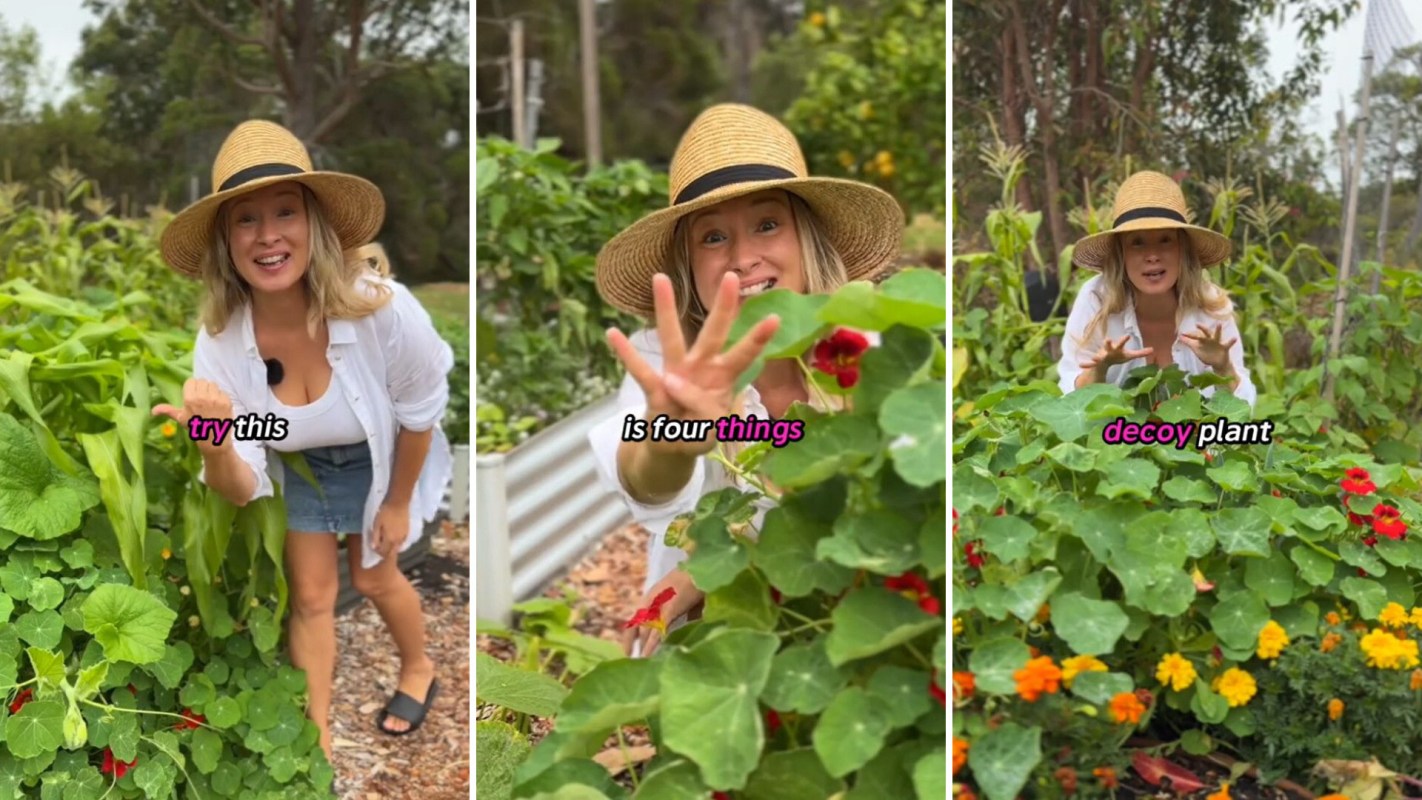Nothing is more frustrating than finding all of your hard work in the vegetable garden has been spoiled by intruders. Nobody likes a party crasher.
One TikToker has the solution for you, saying: "If you're struggling with pests in your garden, then you gotta try this."
The scoop
Avid gardener In My Patch gardening (@in_my_patch) posted her tried-and-true gardening hack that will protect your plants from pests.
@in_my_patch If you struggle with pests in your veggie garden be sure to add this! I know how frustrating it can be when all your patience and love growing your veggie garden turns to crap when your plants get mauled by pests. Try adding these to the mix! Just one of many pests strategies I use in my garden Happy gardening 🥂 Sarah #inmypatch #gardening #tiktokaustralia #vegetablegarden #pest #caterpillar #beginnergardener #growingfood #managingpests #organicpestcontrol ♬ boondocks - L.Dre
Her pest-control strategy is simple and requires the addition of only one plant to your garden: nasturtiums.
Not only will the plant add a nice splash of color to your garden, but it's also entirely edible. While In My Patch doesn't necessarily recommend them for their flavor, as they tend to be overly peppery, they do add a welcome and alluring vibrance to any dish.
Quick and easy to grow, nasturtiums will distract pests from your high-value crops while attracting pollinators, maintaining a harmonic balance in the garden.
"Happy gardening," she writes in the caption.
How it's helping
Using natural solutions like this is beneficial to all parties involved. The plants flourish, the bugs are redirected, and you reap the full benefits of your garden — including a healthier life due to less stress, increased fiber intake, and the built-in physical exercise of gardening.
This is also a great example of companion planting. Also known as intercropping or interplanting, it involves planting different plants together strategically so they can mutually benefit each other.
Gardening is also an excellent way to ensure your produce is pesticide-free. The harsh chemicals found in store-bought solutions are harmful to the environment and find their way into our waterways, endangering our health even further.
Agriculture is responsible for 11% of the world's carbon pollution, according to the Center for Climate and Energy Solutions. Gardening helps to minimize that number by decreasing the demand for mass-produced, store-bought, and globally shipped produce.
With grocery store prices on the rise, growing your own food also saves money and reduces packaging waste.
What everyone's saying
The post was welcomed with open arms and intrigue.
One TikToker wrote: "Amazing!!"
Another said: "Soooooo pretty."
"Such a great plant," commented a third.
Join our free newsletter for easy tips to save more, waste less, and help yourself while helping the planet.









